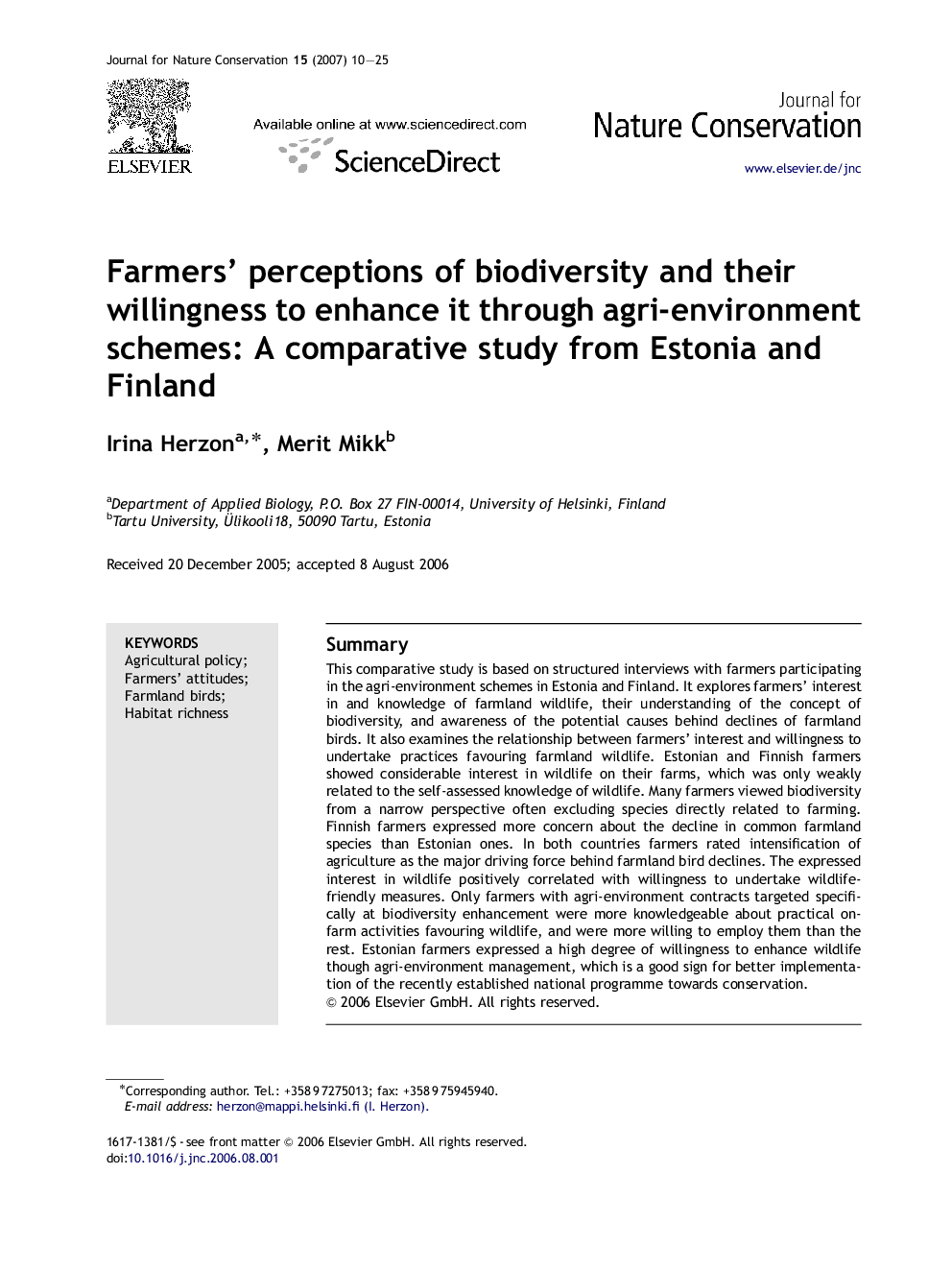| Article ID | Journal | Published Year | Pages | File Type |
|---|---|---|---|---|
| 4400267 | Journal for Nature Conservation | 2007 | 16 Pages |
SummaryThis comparative study is based on structured interviews with farmers participating in the agri-environment schemes in Estonia and Finland. It explores farmers’ interest in and knowledge of farmland wildlife, their understanding of the concept of biodiversity, and awareness of the potential causes behind declines of farmland birds. It also examines the relationship between farmers’ interest and willingness to undertake practices favouring farmland wildlife. Estonian and Finnish farmers showed considerable interest in wildlife on their farms, which was only weakly related to the self-assessed knowledge of wildlife. Many farmers viewed biodiversity from a narrow perspective often excluding species directly related to farming. Finnish farmers expressed more concern about the decline in common farmland species than Estonian ones. In both countries farmers rated intensification of agriculture as the major driving force behind farmland bird declines. The expressed interest in wildlife positively correlated with willingness to undertake wildlife-friendly measures. Only farmers with agri-environment contracts targeted specifically at biodiversity enhancement were more knowledgeable about practical on-farm activities favouring wildlife, and were more willing to employ them than the rest. Estonian farmers expressed a high degree of willingness to enhance wildlife though agri-environment management, which is a good sign for better implementation of the recently established national programme towards conservation.
